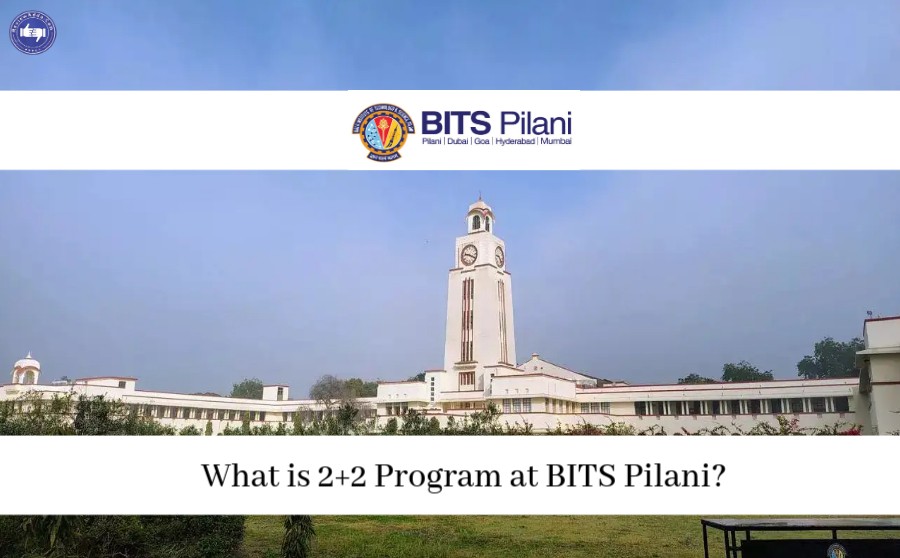Topic We Cover: How to become a Scientist
1. About Scientist
2. Skills Required for Scientist
3. Courses & Eligibility
4. Courses & Eligibility
5. Career & Scope
6. Employment Opportunities for Scientists
7. Top Recruiting Companies for Scientists
8. Salary
9. Pros of Becoming a Scientist
10. Cons of Becoming a Scientist
11. Conclusion
About Scientist
Since childhood, if Science is the subject that has captivated you then you can definitely think of becoming a scientist. It is a job profile that involves a huge arena of Science as a subject in detail. If you are fascinated more towards biology then you can opt to become a cytologist or a botanist or an ethologist or any other distinctive biological scientist. Similarly, in the Field of Physics or Chemistry as per your interest you can choose for different options of becoming a scientist.

Let’s talk more about who truly real a scientist is and what is the work profile and accountabilities of a scientist. A Scientist is the one who has Involvement in Scientific Activities focusing mainly on achieving knowledge to envision and describe the world around us. Right from judgment out the origin to extinction and existence, the work of a scientist includes all. The role of a scientist can be identified in all possible spheres of celestial and non-celestial bodies, biological and non-biological, communicational and non-communicational activities. Therefore, if you design to become a scientist then can explore all the fields present around you.
A scientist is one of the most influential and respectable professions in the whole world. A scientist is one who is accountable to make this planet more advanced and beautiful. All the technologies we are having it right now is only because of the scientists that allow us to understand more and more about this world and even about the other worlds which are actually existing.
A Job profile of the scientist generally includes planning, analyzing and directing various goals and accomplishments. The scientists can even save a life by progressing new life-saving drugs. Anyway, let’s come to the main point. We know that many people have their childhood dream to become a scientist. If this passion is still living inside your body then I think you are in the right place. I have added a perfect guide on how to become a Scientist in India in this article, along with the educational and other necessities.
How to Become a Scientist?
Before moving forward on details about how to become a Scientist. You must understand that Scientist is a person or individual who is studying and has expert & Skilled Knowledge of one or more of the natural & physical sciences.
Skills Required for Scientist:
- It needs dedication to work, attention and ability to face long working hours.
- A scientist should have an ability to work individually and sometimes with guidance.
- You must have good computing skills, presentation skills, team working skills, Time Management, etc.
- It is not easy to become a scientist. They even have some responsibilities apart from earning a hectic income per month. Therefore, I am adding up some list of skills that are required to fulfill this profession.
- Scientists needed dedicated attention and they must have the ability to work for stretching hours to accomplish their plans.
- They are also required to work independently sometimes and also, with the little guidance.
- They need to motivate themselves every time.
- The scientists also should acquire an enthusiasm for their subjects like Team-Working Skills, presentation skills, computing skills, people skills, and time management.
There are several fields that required knowledge and application of science. Here we have mentioned some types of scientists in different fields:
- Agronomist – It specializes in crops and soils.
- Botanist – It studies the plants, herbs, etc.
- Geologist – It specializes in the history of earth.
- Microbiologist – Studies the microscopic animals and plants.
- Marine Biologist – It studies ocean animals and plants.
Courses & Eligibility
What qualifications are required to be a scientist?
To become a scientist Pursuing Courses is the first step. Firstly, select a specialization in which field you want to become a scientist and go for opt courses accordingly.
Like, If you like to become a Scientist at NASA, then you must choose technology, science, Mathematics, engineering and centered education”.
To become a scientist you must have to study tough. Here we are providing a List of Some Undergraduate, Postgraduate and other courses which you may opt:
Bachelor Courses:
- Bachelor of Science (B.Sc)
- B.Tech in relevant specialization
Master Courses:
- Master of Science (M.Sc)
- Technical or equiv. master degree in relevant field.
After successfully finishing the master degree, you can also Apply for Doctoral Level (Ph.D) Courses in the specific specialization that you have chosen.
Admission Process
How to get Admission?
In India, at national, state or University Level Entrance Tests are organized through which admissions will be given to students. Some colleges also offer admissions on the basis of the merit list of the qualifying examination. After getting shortlisted for admissions, for final admissions some college also organizes group discussion and personal interview rounds.
As per your preferences you can appear in various entrance exams. For Admissions in Indian Institute of Technology (IITs), you must have qualified the JEE Main and JEE Advanced Examination. Here for admissions we are providing a list of several entrance tests:
- JEE (Joint Entrance Exam) Main
- JEE Advanced
- GATE (Graduate Aptitude Test in Engineering)
- IISER Aptitude Test
Where to apply for admission?
There are several govt. and private colleges in a nation which gives quality education in different fields. Some top colleges are listed here:
- Indian Inst. of Tech. (IIT), Delhi
- National Institute of Technology (NIT’s)
- Indian Inst. of Space Science and Tech. (IIST)
- Indian Institute of Science (IISc)
- Indian Inst. of Science Edu. and Research (IISER)
Career & Scope
In the Field of Research and Development the increasing popularity and explosive development has generated lots of job opportunities.
Scientists are majorly needed in several fields like social science, agriculture, engineering, physical science, space research, technology, and many others.
There are abundance of job opportunities are offered to scientists in govt. as well as private organizations. With a research degree, whether it is in India or in abroad you can also find jobs.
What will be your job profile?
As a scientist you can Work in Different Fields. Some job profiles of scientists in various fields are mentioned here:
- Archaeologists
- Astronomers
- Biologists
- Earth scientists
- Food Scientists
- Military scientists
- Economists
- Communication scientists
- Criminologists
- Neuroscientists
- Agronomists
- Ecologists
- Geologists
- Computer scientists
 Get Updated Review ( Voice Based Alumni Feeback)
Get Updated Review ( Voice Based Alumni Feeback)
-
 Check Review (Alumni Feedback) - UPES Dehradoon – Click Here
Check Review (Alumni Feedback) - UPES Dehradoon – Click Here -
 Check Review (Alumni Feedback) - Amity Gurgaon – Click Here
Check Review (Alumni Feedback) - Amity Gurgaon – Click Here -
 Check Review (Alumni Feedback) - KL University – Click Here
Check Review (Alumni Feedback) - KL University – Click Here -
 Check Review (Alumni Feedback) - Apeejay Stya University – Click Here
Check Review (Alumni Feedback) - Apeejay Stya University – Click Here -
 Check Review (Alumni Feedback) - Chitkara University – Click Here
Check Review (Alumni Feedback) - Chitkara University – Click Here
Types of Job Roles Scientist
As discussed above, there are a Number of Distinctive Fields that can help you become a Scientist. The different types of Scientists are based on the classification and specification studied and expertized in. Now, let’s read in detail about these job profiles of scientists and understand about the type of work they perform and then select the one that match your interest.
Astronomer: An Astronomer is the one who studies about stars, galaxies and planets. Studying about the universe and the movement of the objects within it is the focus area of the Astronomers. These are persons who is an expert in a field of the planetary movements and tracks celestial and non-celestial objects of the outer space.
Agronomist: Agronomy is the Field of Science that deals with the study of agriculture and its technological growth. The person involved in carrying out the process of research and development giving rise to agricultural advancement is an Agronomist. Commonly referred as Plant Scientists, they are ones who read about the type and genetic existence of a plant, agricultural land and soil in order to produce the best out it.
Cytologist or Cytotechnologist: These scientists are the ones who work to explain in speech the cell and the cellular movements and variations. Cytotechnology is a sub-stream of Biology focusing mainly on the cells. Study of DNA (deoxyribonucleic acid), cell structure, cell multiplication, cell functioning and life history and pathology of cells, are addressed by a Cytologist.
Ethologist: An Ethologist specializes in the Study of Animal Behavior. Their main focus is to understand the behavior of animals under natural conditions and under man-made conditions. They also check the adaptive traits of the animals in an unnatural or evolutionary condition.
Botanist: An expert of the Plant Science or Botany is termed as a Botanist. They study about the flowering and non-flowering plants present in the environment. The structure, growth, evolution and uses of the plants are studied in detail by the Botanists. There are certain classified areas of Botany that structures and divides the task of a Botanist. These include – Plant Taxonomy, Plant Ecology and Chemical Biology. Among these a Botanist can select any one area of expertise and work according to the requirement of the subject-matter.
Epidemiologist: Spread of diseases in the human body is studied by the Epidemiologist. Epidemiology is that branch of Science that aims to extract the source origin of a disease and works on it to find a solution or remedies to cure the spreading or underdeveloped disease. They also study the behavior and habits of the individual before and after inducing a suitable drug for the spreading disease.
Microbiologists: Study of Fungi, Algae and Bacteria is done by a Microbiologist. Dealing with the evolution, structure and growth of the microscopic animals and plants is the role of the Microbiologists. Their role also comprises of the study of disease-causing organisms and organisms responsible for environmental damages. Study of the organisms that are of industrial and Agricultural Interest also slips under the study circle of a Microbiologist.
Geologist: They are the type of scientists who study the three states of matters ie. Solid, Liquid and Gaseous substance, constituting the Earth and other terrestrial planets. A Geologist studies in detail about the Earth Processes, Earth History and Earth Materials. From tectonic movements leading to earthquake, volcanic eruption, floods and landslides to ecological sustainability of plants and soil materials are catered by these experts.
Meteorologist: These scientists are the ones who study about climate and weather. Checking on the climatic condition and the changes that have been or might take place are recorded by the Meteorologists. They may indulge in forecasting weather or may stick to the research area of the weather. These scientists predict the climatic disaster that may take place and help people to evacuate from the surrounding area.
Marine Biologist: Marine Biologist is the one who studies the marine organisms constituting of the animals and plants. The study reveals the interaction and behavior of these organisms with the environment. A close research on aquatic plants and animals are done by the Marine Biologists after mastering on biological oceanography and geological oceanography. These two streams enhance the research work and help in depicting a clear picture of the research conducted by the Marine Biologist.
Paleontologist: These scientists are the investigators of the fossils. They study the history of life on Earth based on the collected fossils. These remains are studied for the purpose of calculation of the existence of the fossils found. Paleontologists also dig out the reason of the extinction of the remains and preserve them to understand the Primitive Environment in a more clearer way. These scientists work in close contact with the archaeologists to discover more related findings.
Seismologist: Seismologist studies the details about an earthquake. The reason behind an earthquake and related after-effects above and beneath the Earth are studied by these scientists. Their researches reveal the expected disaster that can be caused due to the tectonic movements and also find out the areas that are more prone to such activities.
Employment Opportunities for Scientists
With an enthusiastic interest in Science and Research, candidates can choose for a career like Scientist. For the ones who pursue to become a Scientist must understand the Different Employment Opportunities available for them as a Scientist. To help candidates we have prepared a list of industries where the availability of employment opportunities for scientists are easily. The list includes the following:
- Indian Ministries – Mining, Ore, Archeology, Geology, etc.
- Food and Beverage Industry
- Research Centers/Institutions
- Aeronautical Associations
- Mining Industry
- Medical Centers/Institutions
- Manufacturing and Warehouse Units
- Animal Care Centers
- Wildlife Sanctuaries
- Healthcare Centers/Institutions
Top Recruiting Companies for Scientists
In a system to become a Scientist, it is essential that the candidates obtain relevant degrees and certificates along with approved journals. Companies will hire these talented, budding, and enthusiastic scientists by considering the qualifying documents, with a good pay-scale and desirable post. There are a number of Top Recruiting Companies for scientist that the aspirants can opt for. Let’s take a look at these companies or Top Organizations Hiring Scientists.
- Indian Airforce
- Ministry of Mines
- National Aeronautics and Space Administration (NASA)
- Indian Space Research Organization (ISRO)
- Archaeological Survey of India (ASI)
- Indian Inst. of Science Edu. and Research (IISER)
- International Flavors & Fragrances India Ltd
- National Centre For Cell Science (NCCS)
- Inst. for Stem Cell Biology and Regenerative Medicine (InStem)
- Aeronautical Development Agency (ADA)
- Aero Control
- ASRC Aerospace Corporation
- Bhabha Atomic Research Centre (BARC)
- Indian Council of Agricultural Research (ICAR)
- Indian Institute of Tropical Meteorology (IITM)
- Council of Scientific & Industrial Research (CSIR)
- Aryabhatta Research Institute of Observational Sciences (ARIES)
- Indian Association for Cultivation of Science (IACS)
Salary
Now, the question is ‘What salary packages are offered to scientists after obtaining a research degree?
In the beginning, as a scientist in various influential institutions like IITs and IISc you can easily earn between Rs. 5 lacs to 6 lacs per year.
The salary packages offered to scientist are also depend upon various terms such as working area, academic qualification, companies & organizations, work experience, etc. For scientists there is no max. salary limit, with some good Experience in the Specific Field, you can earn beyond the limits.
Pay Scale/Salary of Scientist
The pay scale of different scientists is different. The salary is also based on the kind of industry they are associated with. You can have a look of the approximated salary scale of the different types of scientists given below.
|
Job Profile |
Initial Salary per annum (in INR) |
Mid-Level Salary per annum (in INR) |
Sr. Level Salary per annum (INR) |
|
Astronomer |
6,00,000 – 8,00,000 |
8,00,000 – 10,00,000 |
10,00,000 – 15,00,000 |
|
Agronomist |
1,00,773 |
5,81,660 |
7,97,430 |
|
Botanist |
2,47,301 |
5,89,581 |
11,63,496 |
|
Epidemiologist |
1,52,051 |
6,16,736 |
12,22,370 |
|
Microbiologists |
1,32,819 |
2,93,865 |
9,38,883 |
|
Geologist |
2,31,402 |
5,09,972 |
13,68,460 |
|
Meteorologist |
1,20,000 |
3,00,00 |
6,00,00 |
|
Marine Biologist |
99,550 |
4,50,000 |
10,45,437 |
|
Paleontologist |
2,00,000 |
5,00,000 |
10,00,000 |
|
Seismologist |
7,39,000 |
7,80,000 |
8,10,000 |
Top Colleges/Institutes for Scientific R&D
|
No. |
College/Institute |
City |
|
1 |
Defence Research & Development Organization (DRDO) |
New Delhi |
|
2 |
ISRO- Indian Space Research organization |
Bangalore |
|
3 |
NAL- National Aerospace Laboratories |
Bangalore |
|
4 |
BEL- Bharat Electronics Limited |
Bangalore |
|
5 |
BARC- Bhabha Atomic Research Centre |
Mumbai |
|
6 |
Central Drug Research Institute (CDRI) |
Lucknow |
|
8 |
Jawaharlal Nehru University |
New Delhi |
|
9 |
University of Delhi |
New Delhi |
|
10 |
National Brain Research Centre |
Gurgaon |
|
11 |
Tata Institute of Fundamental Research |
Mumbai |
|
12 |
Inst. of Clinical Research in India |
New Delhi |
|
13 |
Indian Council of Medical Research |
New Delhi |
|
14 |
Institute of Bioresources and Sustainable Development |
Manipur |
Pros of Becoming a Scientist
- By becoming a Scientist, you are around to build a history out of your research materials.
- You are indulged in a lot of research works and exciting experiments that will maintain your interest throughout the work.
- A good package is intact with your reputed post.
- At a number times, you will be involved in saving the lives of many around you which will give a sense of pride and esteem to work harder.
- With every research or experiment that you initiate with you will learn a new thing. This will help you in answering your curiosities.
- You will have a great role in developing technology and innovations.
Cons of Becoming a Scientist
- A lot of responsibilities might lead you to make small mistakes which could risk the lives of many around you.
- Extra attention and precision is required with no room of mistakes.
- Long working hours may lead to less amount of family interactions.
- Scientists often stick to one project for their entire life with no scope of development and professional growth.
- At times your experiments can be too expensive to handle, as science is expensive and costly business to deal with.
Conclusion
With the growing popularity and the population, explosive development has created plenty of needs in the research and development Industry. As we understand that India comes in one of the top countries which undertake basic scientific research. Therefore, scientists are needed in almost every field.
In the end, in India there could be a great scope for the people who are passionate to become a scientist. To make sure they go through the right process towards achieving their passion and dream.







